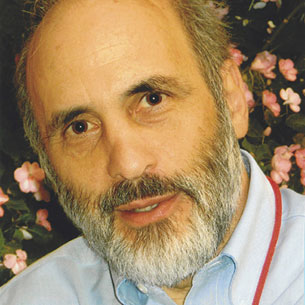I just read the Personal History column in the June 13 & 20, 2011, New Yorker—“The Aquarium”— a powerful recounting by Aleksandar Hemon of his infant daughter’s battle with a brain tumor. For any physician and certainly for any parent, the account is heartbreaking. But it is also full of valuable insights into the “view from the other side”— how the hospital itself, where we may feel entirely comfortable, is much like a foreign country for our patients and their families — a country where there are few guidebooks and the language spoken is foreign. The hospital cafeteria where we share coffee and a good case or two with colleagues is poignantly described as the “saddest place in the world, with its grim neon lights and gray tabletops and the diffuse foreboding of those who had stepped away from suffering children to have a grilled cheese sandwich.”
I suppose we often fail to understand what goes on when the patient is no longer in front of us. We get to go home at the end of the day (albeit to the challenges, disappointments, and worries of our own private lives) free from the symptoms, worries, and terror that occupy our patients between office visits.
Such stories remind us of the privilege and obligation we have as oncologists to care for patients and their families at a time when they are most vulnerable and in need of support. Perhaps, sometimes, we forget how much they put their trust in us to prescribe the best therapies and provide wise counsel.
There is much more to “translational medicine” than we acknowledge. For sure in this era of breathtaking discovery of the molecular mutations underpinning cancers and the prospects for highly targeted therapies, we have an obligation to “translate” such laboratory discoveries into therapies applicable in the clinic. That is a work in progress. But I would contend that we have an obligation that relates to a much more literal definition of “translation”; we must be willing to “translate” for our patients the highly technical scientific terminology of oncology and of the latest laboratory discoveries into language that conveys realistic expectations for our patients and their families in the context of their own clinical circumstances.
More important, the practice of oncology is about so much more than the treatments we prescribe — whether targeted or not. It is about taking a patient and his family through an illness, making certain that they understand the disease, their prospects, and the possible outcomes so that they can make the most appropriate decisions. It is about being certain to listen to what our patients say so that what we prescribe for them reflects the best we can offer them to meet their needs and expectations. Finally, it means to listen and prescribe for them in a manner that reflects our humanism and compassion and our genuine concern for their welfare.


Recent posts